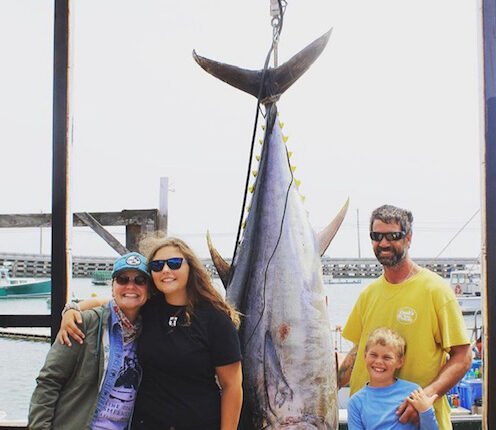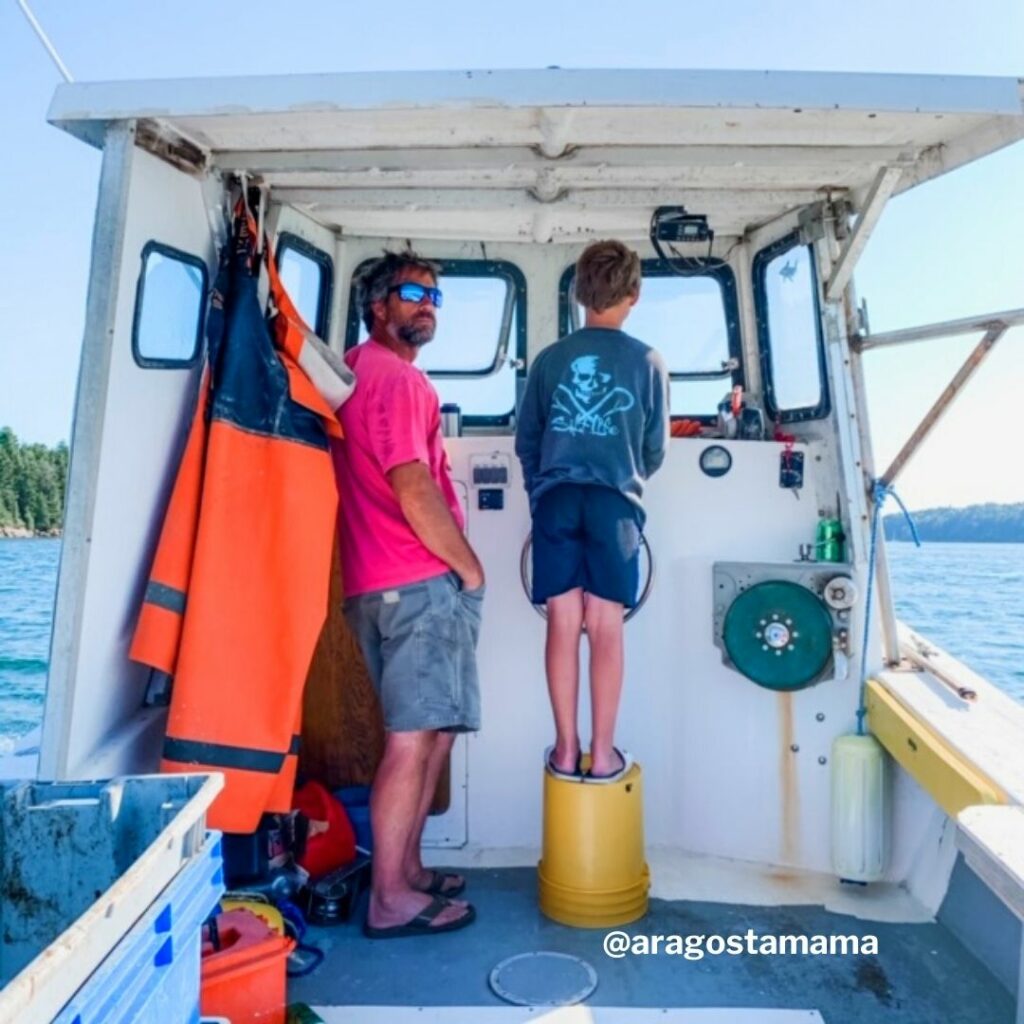Family Fishers Fight For Their Way of Life
By Prianka Sharma, Assistant Chief Counsel
Earlier this month I had the pleasure of speaking with Monique Coombs. Monique introduced herself as a “fisherman’s wife,” but she is also the Director of Community Programs for the Maine Coast Fishermen’s Association. As director, Monique provides and maintains access to gear, the waterfront, and healthcare for the fishermen in her community.
Fishing is a deep part of Monique’s life. Her lobster sweatshirt stood out because it symbolized how important fishing is in her community. Monique lives on Orrs Island, Maine, a small island of 539 people in Casco Bay. Orrs Island is known for its generations of fishing families. If its residents aren’t fishers, they are connected to the industry in some other way: either as a family member of a fisherman, or by supplying equipment and gear, or processing and shipping fish, or even something as simple as selling coffee to fishermen on the way to the docks. What affects Maine’s fishing communities affects everyone on Orrs Island.
As tourists, we often come into a community like Orrs Island, enjoy a fresh-caught Maine lobster, and leave. We don’t think about how that lobster gets to our table: from the fishermen, to the processor and distributor, to the restaurant owner, all of whom ensure that each person does their part. Knowing and understanding these connections is crucial to understanding the barriers small businesses on Orrs Island face. These challenges increase as new policies and regulatory priorities emerge. Each new regulation brings with it additional costs that threaten to disrupt fishermen’s livelihoods. When I asked Monique what would happen if fishermen were to go out of business in this area, she said that it would turn Orrs Island into a ghost town.
As the world changes, so does life on Orrs Island. Fishermen nationwide worry about offshore wind turbines because there is not enough data on the obstacles they create. Monique told me that wind turbines represent physical obstacles that can change where fish live and migrate, disrupting fishing communities. However, she also explained that they may pose a threat to fishermen, disrupting their ability to navigate and use their gear. Most importantly, turbines may pose a risk to fishermen who need rescue by the Coast Guard. She told me that these changes make life stressful and unpredictable.
Monique manages access to mental health resources in her day job because, for fishermen and their families, safety is a big concern. Many experience post-traumatic stress as a result of being thrown overboard, experiencing an injury, or losing their vessels while out on the water. Monique is also stressed when her husband is at sea. She often goes days without seeing or contacting him. The unknown safety implications of offshore wind development make a difficult job even harder.
Additionally, the increasing burden of regulatory red tape hurts local fishermen. Over the years, fishermen have been bogged down by more and more regulations and administrative hurdles from catch-limits, to cumbersome gear modifications, to competition from offshore energy development. Fishermen are more worried about whether they filed their paperwork correctly and whether they missed a comment deadline on a particular regulation or outreach meeting than they are about fishing. The added stress consumes their thoughts even while they are on the water. One fisherman said that he was so preoccupied with reporting requirements that he forgot to check the weather before going out on the water, one of the most important things to do before leaving port. Monique wishes there was an app for fishing regulations so that everything would be in one place and all of the agencies would interact with one another.
According to the National Oceanic and Atmospheric Administration, 70 to 85 percent of seafood consumed in the United States is imported.[1] Not only does this run contrary to climate change mitigation goals, but it is a testament to how challenging it is to be a fisherman in this country. Monique mentioned that regulators think of the industry as “commercial fishing.” But small fishing firms make up 99.4 percent of the industry.[2] These are real families like Monique’s whose livelihoods depend on their ability to fish, unencumbered by development projects and lengthy and costly regulations.
For more information on Maine’s local fishing industry, please read “The State of Maine’s Working Waterfront” by the Maine Coast’s Fishermen’s Association. For more on Monique’s work fighting for mental health awareness among fishermen, see her column in the Portland (ME) Press Herald.
[1] https://www.fishwatch.gov/sustainable-seafood/the-global-picture#:~:text=Farmed%20Seafood%20Imports%20to%20United,in%20the%20U.S.%20is%20imported.
[2] U.S. Census Bureau Statistics of U.S. Businesses: 2017 Annual Data Tables by Establishment Industry, 2017 SUSB Annual Data Tables by Establishment Industry (https://www.census.gov/programs-surveys/susb.html)



Comments are closed.